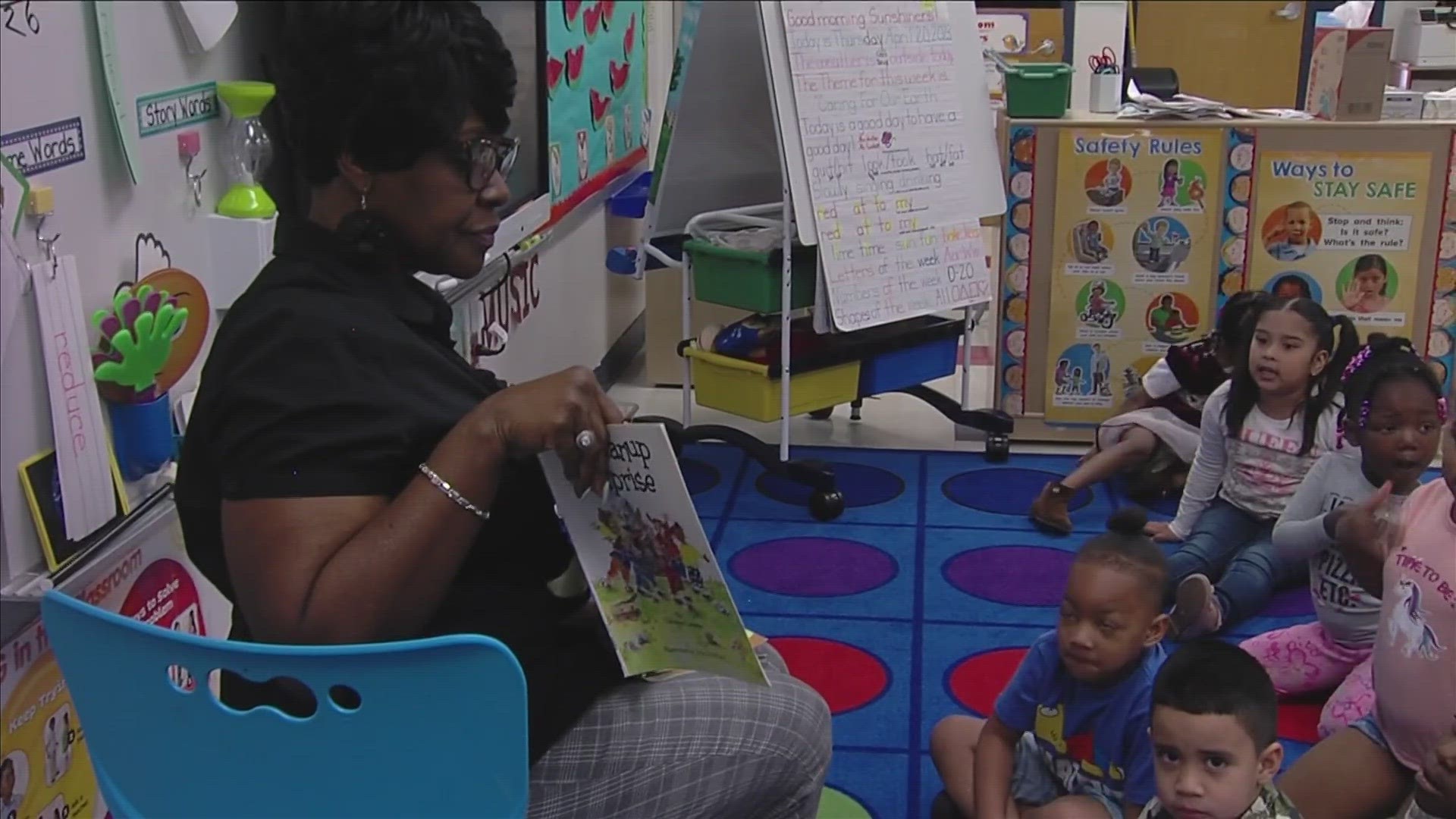MEMPHIS, Tenn. — ‘Hooked on Phonics’ tapes helped millions of millennials learn to read, according to the company’s website. The program focused on phonics and comprehension.
Memphis-Shelby County Schools is using similar skills, to teach this generation how to read.
“Reading for very many children and adults is an effortful process," said Developmental Psychologist Dr. Stewart Burgess. “It's not that easy.”
In fact, reading is where some students struggle most in Memphis-Shelby County Schools. According to state TCAP data, in 2022 only 23% of third-graders passed the state’s reading exam.
“This has been going on for quite a while that our students are not reading on grade level,” said Memphis Shelby County Schools Chief Academic Office Jaron Carson. “This is not just a Memphis Shelby County Schools issue.”
In many ways, it’s also a community problem. According to Literacy Mid-South, one in seven adults read at or below a 6th grade level, due in part to the strain of poverty and trauma.
“Most of our communities in the inner cities have a lack of resources,” said Carson. “We see poverty. We see deficiencies.”
Factor in learning loss from pandemic, according to Carson, and students are struggling more.
“We've realized that coming out of the pandemic, more than ever, about some of the struggles that our students are going through,” said Carson. “We’re just trying to get them support first.”
Now that students are back in class, the district is going back to the basics — teaching ‘The Science of Reading.’
“It all began with the state department. They rolled out an initiative called Reading 360,” said Carson. “That initiative is totally built upon the science of reading.”
State leaders launched this new program in response to pandemic learning loss. According to the state's website, leaders used $40 million in federal grant funding to immediately launch Reading 360.
It’s a program based on decades old studies of reading and comprehension. According to the state's website, "Reading 360 will provide optional grants and resources to help more Tennessee students develop strong phonics-based reading skills by supporting districts, teachers, and families."
According to a reading study with Grand Canyon University, the concept can be traced back to the 18th century. The study continues stating, “The science of reading is not only a movement but demonstrates the best practices and methods to help children learn to read, starting in the earliest steps of language to the successful skills of decoding unfamiliar words.”
Developmental psychologist Dr. Stewart Burgess agrees, saying the science of reading is based on two things: phonics and comprehension.
“The research on reading is somewhat complex, but it is also fairly clear. Phonics is vital and key,” said Dr. Burgess. “First, you need to recognize the letter symbols, then you need to pair the sounds that go with each letter. The second big predictor is comprehension. Are we paying attention to what we're reading? Do we understand what we're reading?”
According to Burgess, the earlier kids start learning at home, the better they’ll perform in class.
“It all starts at home, by all the things that we do with our kids, reading to them, talking about the world and having a language-rich environment at home," said Burgess.
Not every researcher agrees with this learning method. Some argue it’s too much interference in class, and there’s not a national curriculum based on the studies. However, the Tennessee board of education stands behind it.
In fact, since the district started teaching using the state’s Reading360 program, there’s been some improvement.
Overall, MSCS TCAP scores in reading went up, slightly last year, from 15% passing to 22%. District leaders believe we’re trending up — and it’s working.

